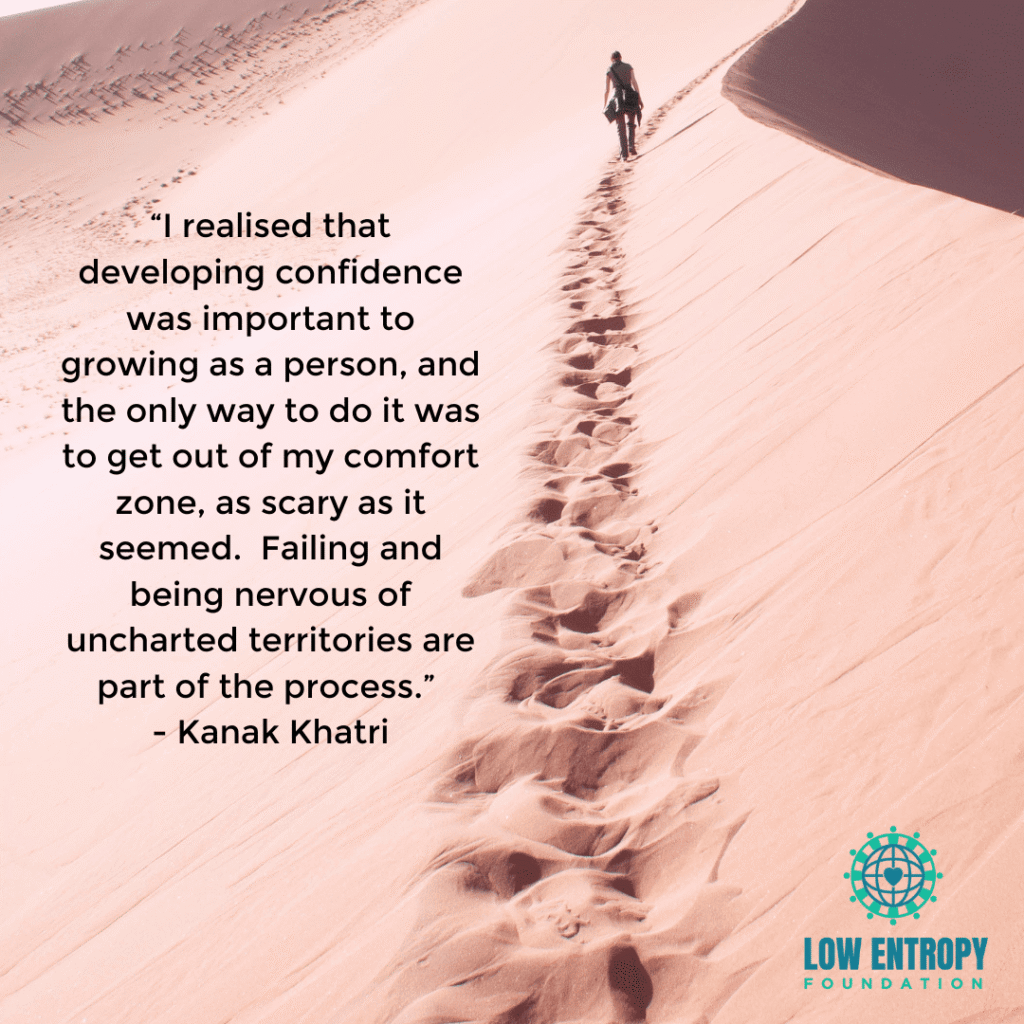Roaring 20’s
Julia Magsombol (she/her/hers), Low Entropy Volunteer Writer If there’s one thing I’ve learned in my 20s, it’s that there are only three things that last long in this lifetime of ours: taxes, change and problems. Think of a time when you never had any problems? Nothing. Problems come in all forms every day—whether they’re […]
Sooth the Smarting Wound
Eri Ikezawa (she/her/hers), Low Entropy Volunteer Writer Peering over the edge of a 40-foot cliff. Sitting in a crowded plane, rocking from side to side, trying to stomach the nausea from turbulence. Feeling faint as I watch blood pouring copiously from an open wound. These are all legitimate fears, personal ones that I have, […]
The Lost Sun
Cristina Crescenzo (she/her/hers), Low Entropy Volunteer Writer I remember one day when I was a little, I walked into the front entrance of my school as the sun was shining behind me, casting my shadow along the carpet. There was a teacher standing by the door, smiling at me as she said, “Cristina, the […]
Wounded Child
Ling-Yee Sze, Low Entropy Volunteer Writer I personally think that I am quite experienced in feeling lonely. The feeling of loneliness was most pervasive in my teenage or adolescent years. I have always enjoyed alone time. A lot of activities that I enjoy – drawing, reading, playing music, etc . . . are […]
Building that Bridge

You can build it, once plank at a time: Low Entropy Volunteer Writer Kanak Khatri writes on how achieving confidence can simply be a matter of working your way toward it. The best explanation that I have for confidence is that it stimulates a situation where there are admirers and a performer. A performer […]
